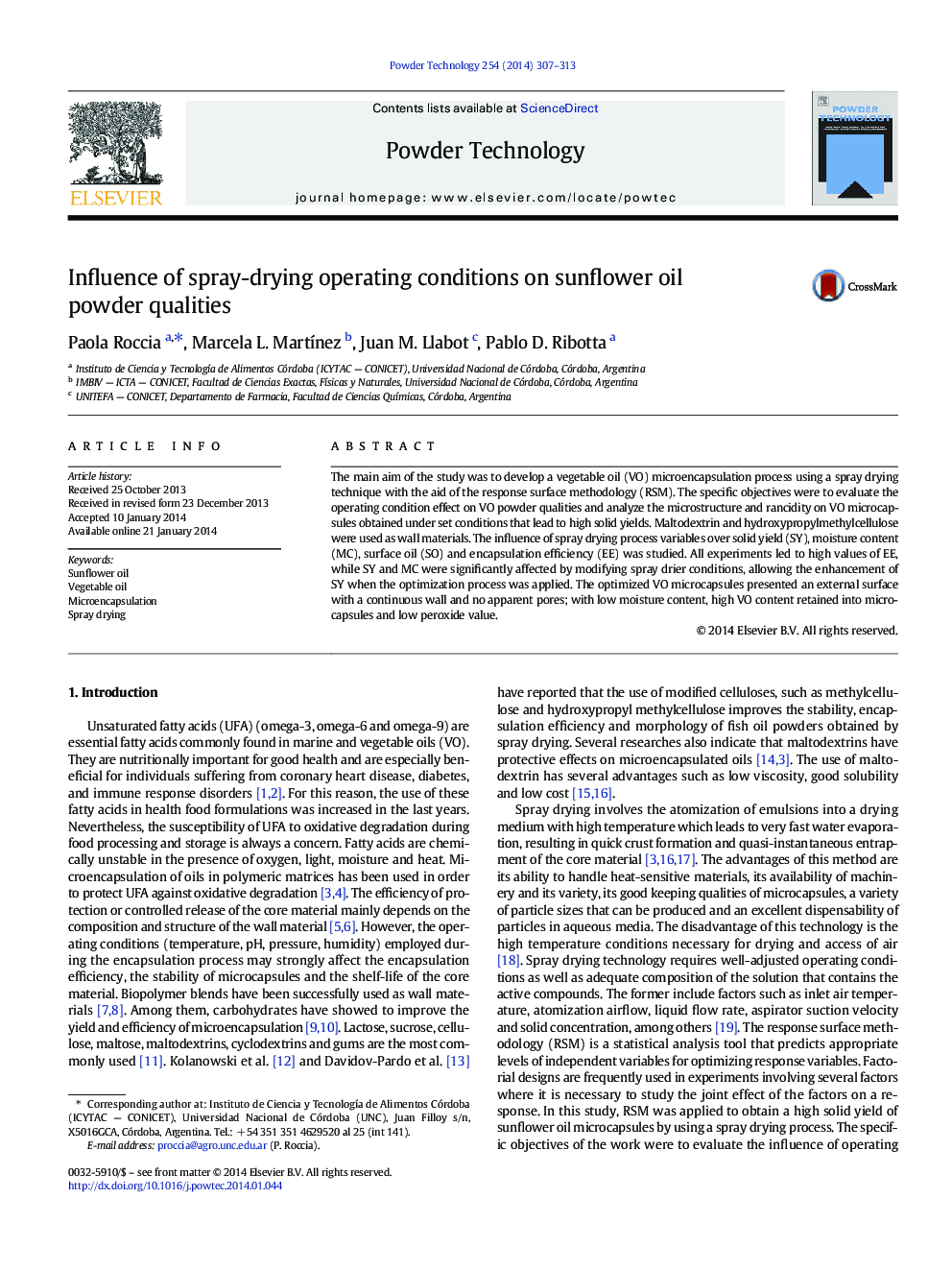| Article ID | Journal | Published Year | Pages | File Type |
|---|---|---|---|---|
| 236257 | Powder Technology | 2014 | 7 Pages |
•The response surface methodology was used to optimize the microencapsulation process.•Solid yield was improved by the changes on the process variables.•Optimized sunflower oil microcapsules presented high encapsulation efficiency.•The optimized process preserves the sunflower oil chemical quality.
The main aim of the study was to develop a vegetable oil (VO) microencapsulation process using a spray drying technique with the aid of the response surface methodology (RSM). The specific objectives were to evaluate the operating condition effect on VO powder qualities and analyze the microstructure and rancidity on VO microcapsules obtained under set conditions that lead to high solid yields. Maltodextrin and hydroxypropylmethylcellulose were used as wall materials. The influence of spray drying process variables over solid yield (SY), moisture content (MC), surface oil (SO) and encapsulation efficiency (EE) was studied. All experiments led to high values of EE, while SY and MC were significantly affected by modifying spray drier conditions, allowing the enhancement of SY when the optimization process was applied. The optimized VO microcapsules presented an external surface with a continuous wall and no apparent pores; with low moisture content, high VO content retained into microcapsules and low peroxide value.
Graphical abstractThe main aim of the study was to develop a vegetable oil (VO) microencapsulation process using a spray drying technique with the aid of the response surface methodology (RSM) and to evaluate the influence of operating conditions on VO powder qualities.Figure optionsDownload full-size imageDownload as PowerPoint slide
